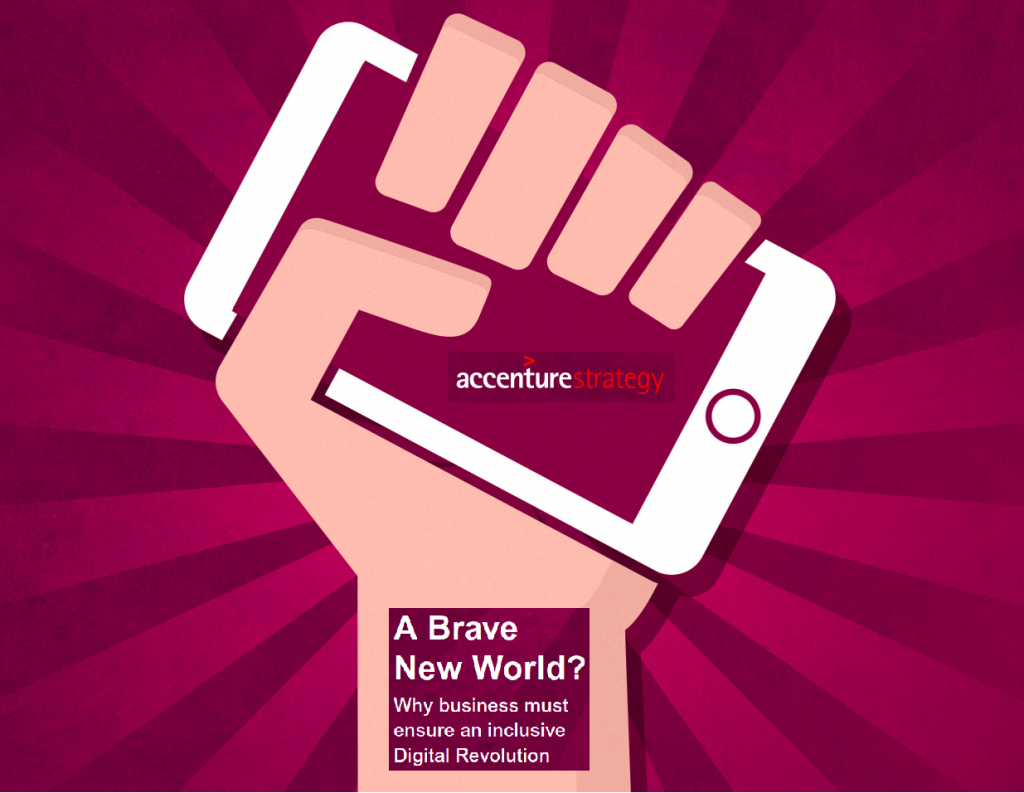
Political Charities and the Brave New World of Professional Activism
This is part 2 of a series of articles entitled ‘Astroturfing the way for the Fourth Industrial Revolution’.
Here are the links to the other parts:
Previous:
0) Introduction: Some Inconvenient Truths about Extinction Rebellion and the Climate Mobilisation movement
1) Dr Gail Marie Bradbrook: Compassionate Revolutionary… for hire?
Next:
3) Green Gail and the Technocratic Industrialists: Citizens Online’s Digitopian Nightmare
4) Extinction Rebellion and the Theory and Practice of Oligarchical Collectivism
5) #XRSpaceJunk 5G & Citizens Online: Industry Agents, Digital Acolytes and State Agitators
BITC: the start of Gail’s career as ‘professional activist’
Gail’s career as ‘professional activist’ begins at Business in the Community, one of the Prince’s Charities. BITC describes itself as “the leading authority on corporate community involvement in the UK” and a “business-led membership organisation made up of progressive businesses”. Their president and patron is Prince Charles, of (the occupied territories of) Cymru (Wales).
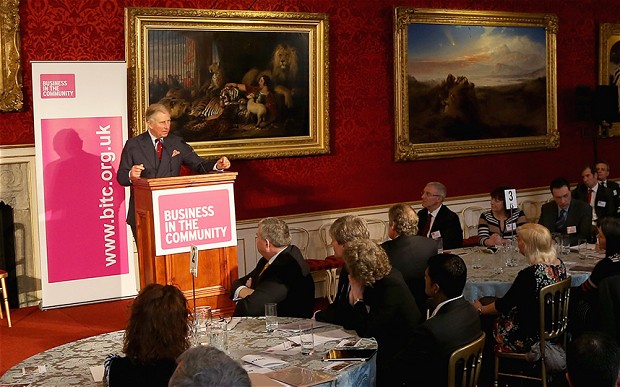
such as the Divine Right of Kings, the right of conquest and of hereditary monarchy.
It has not been possible to find much about what Gail was doing for the BITC back in the early 2000s, as most of their online content from back then is no longer available. We were however able to find out that around that time, BITC were helping the Coca-Cola corporation to ‘enhance business-community relations’ in India. Today, together with all their corporate pals, they’re (with tedious predictably) pushing the glittering generalities of the UN’s ‘Sustainable Development Goals’ and are fully entrenched in the rhetoric of ‘smart climate growth’ – which means taking every opportunity to promote the benefits of using AI, smart-grid (5G) technology, and of course, ‘achieving zero carbon by 2030’.
Curiously enough, BITC’s arrangement with the Coca-Cola corporation was ongoing when Gail was in India, shortly before she first started working with them; though the precise details of how she got the role remain a mystery. That said, her scientific background in studying the interactions of protein and saccharine molecules could at least be said to place her in the peripheral vision of the sugary drinks industry.
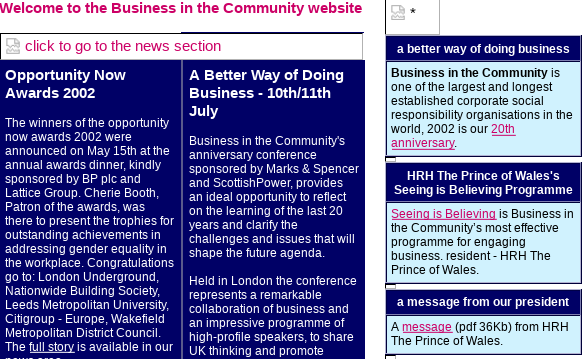
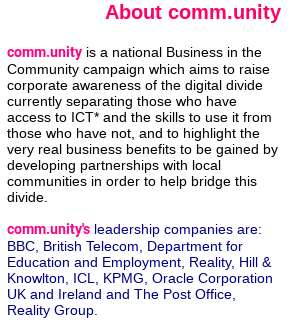
However she became involved, she certainly climbed the corporate hockey-stick pretty darn quick, as within the first year of her involvement with the charity – 2001 – she was made a director and put in charge of the BITC ‘comm.unity’ sub-project. This was when Gail began crusading for the ‘digital inclusion agenda’ – getting paid by telecommunications and tech giants (BskyB, Microsoft, CISCO, etc.), as well as working directly with representatives of the media-industrial complex and various government departments.
It was also the point at which she first began to splash around in the slip-stream of the ‘tax avoidance industry’, working (and who knows what else) with representatives of KPMG, which is one of the ‘Big Four auditors’ that dominate the world of off-shore tax avoidance.
Her industry-funded BITC ‘campaigning’ primarily revolved around helping tech companies to re-brand their desire for ‘universal internet access’ (sales) as a basic human right, by parroting endlessly sanctimonious but increasingly familiar slogans about ‘bringing people together’, ‘connecting people’, etc.
Gail worked at BITC for a couple years before swapping shells, and continuing to push the exact same agenda, only now through the newly-formed ‘Citizens Online’ charity – the charity she continues to work for today. We’ll be ‘going deep’ into that particular industry-proxy soon.
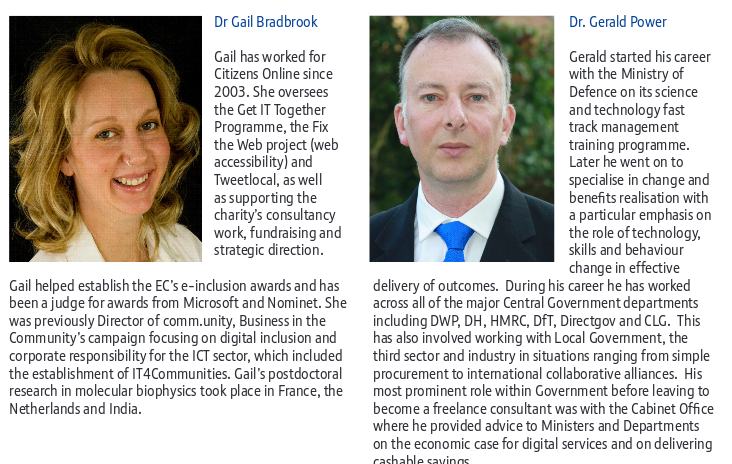
Above is a screenshot from the Citizens Online Digital Skills Systemic Approach White Paper: co-authored by Gail Bradbrook and Dr G Power. [Original here], [back-up here].
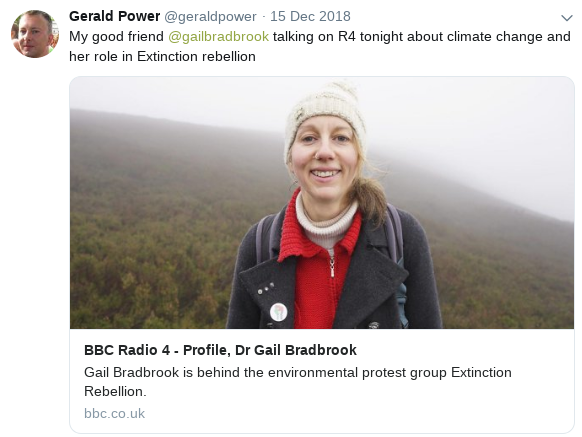
For now, let’s try and get the gist of what the BITC agenda might be by taking a look at a list of their partners and funders. The below archive.org link is from around the time Gail joined the organisation, and shows a list of its members – essentially a who’s who of multinationals and big business.
https://web.archive.org/web/20001211073800/http://www.bitc.org.uk/members.htm
BITC Today

And little has changed over at BITC today. Corporate talking heads from tip-to-stern, with a heavy focus on finance, digital-identification and the tech/data industries. Remarkable how so few notice the similarities between the rhetoric of the world’s industrial-financial elites (the Davos, globalist types), the UN, and that of certain factions within so-called ‘radical environmental’ groups.
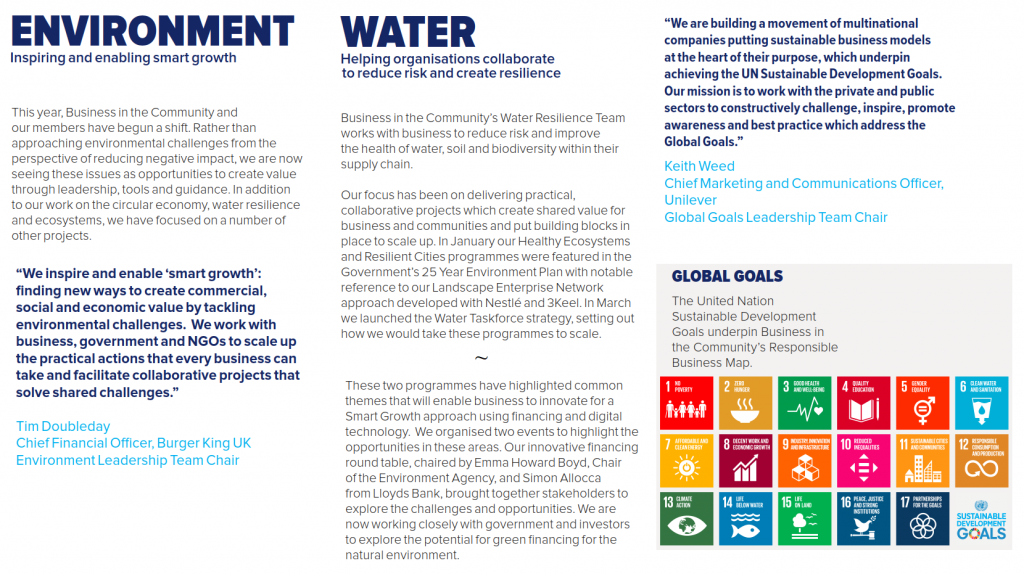
Some excerpts from ‘Onwards and Upwards: BITC’s 2018 annual report – available here in .pdf.
‘Net-zero carbon smart growth’: inspired and enabled by Burger King.
Water resilience, health and biodiversity: developed by Nestle (the irony is not lost on you).
Green growth and financing for the natural environment by Lloyds Bank.
Achieving UN Sustainable Development Goals, courtesy of Unilever.
So don’t worry, folks, it looks like they’ve got this one covered!
If they can get away with this, then it’s no wonder they’re able to convince people to march, willingly and passionately, for having their breathing taxed and driving people further into fuel poverty.
Brave New World Order
Should you be unable to decipher all of the newspeak waffle on their website, or decode the many subtle allusions to carbon rationing, eugenics, and bringing about Huxley’s technocratic Brave New World, then you’re in luck, for Business in the Community have recently published their ‘Agenda for the UK’, entitled…
A Brave New World Report!
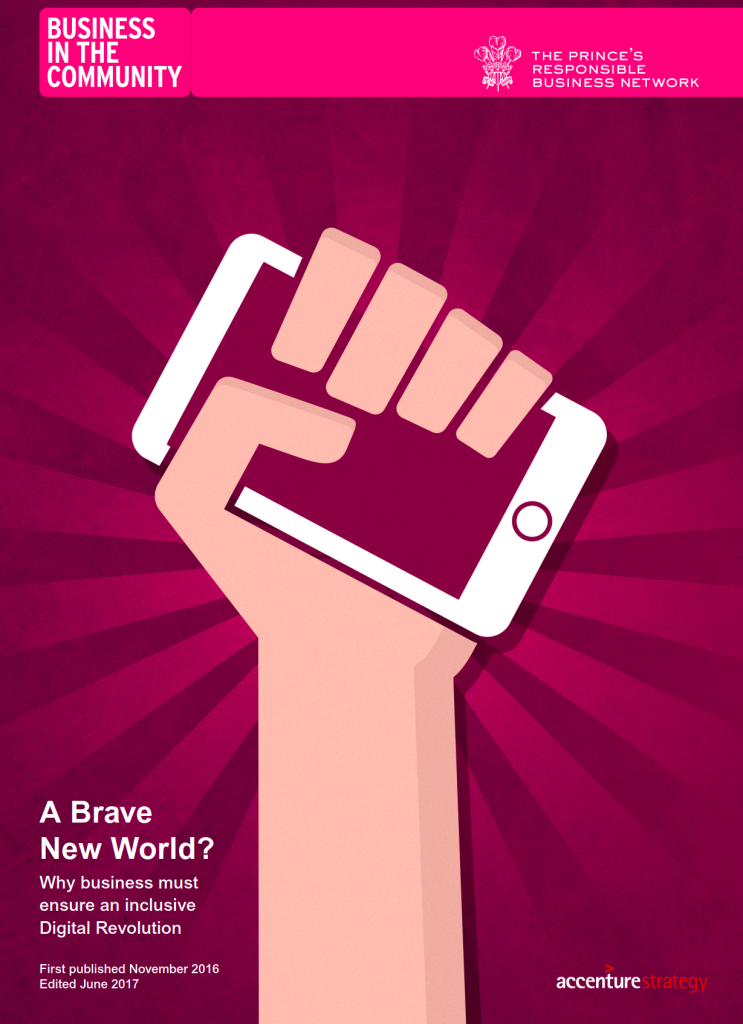
Note their use of the raised fist, also seen in Otpor! and the logos of all the phony (no pun intended) ‘revolutionary’ groups they inspired.
The document is divided into a number of headings; here we’ve picked out some highlights for you. In the first section, they pose the question: “What will our digital future look like?”
Among the assorted statistics that follow, we find:
“Forecast job losses due to automation range significantly – one prediction suggests as many as 10 million job losses in the UK by 2035.”
“Electronic waste is one of the fastest growing waste streams in the world, and is expected to reach 50 million tonnes in 2018 – up 21 per cent from 2014.”
“4 billion people globally remain without access to the internet.”
“By 2022, women will still only represent 30% of the UK’s digital workforce.”
However, we learn that every cloud has a silver lining, since:
“Digital solutions could help reduce global oil consumption by 70% and carbon emissions by 20% in 2030.”
Could. By helping to significantly reduce the populace perhaps? Alas, nothing is mentioned about the deleterious effects of microwaves (or indeed blue light) on the bodies of living organisms.
The next two headings are entitled “Digital promises huge value for UK industry and society” and “However, digital presents a number of challenges that must be addressed.“
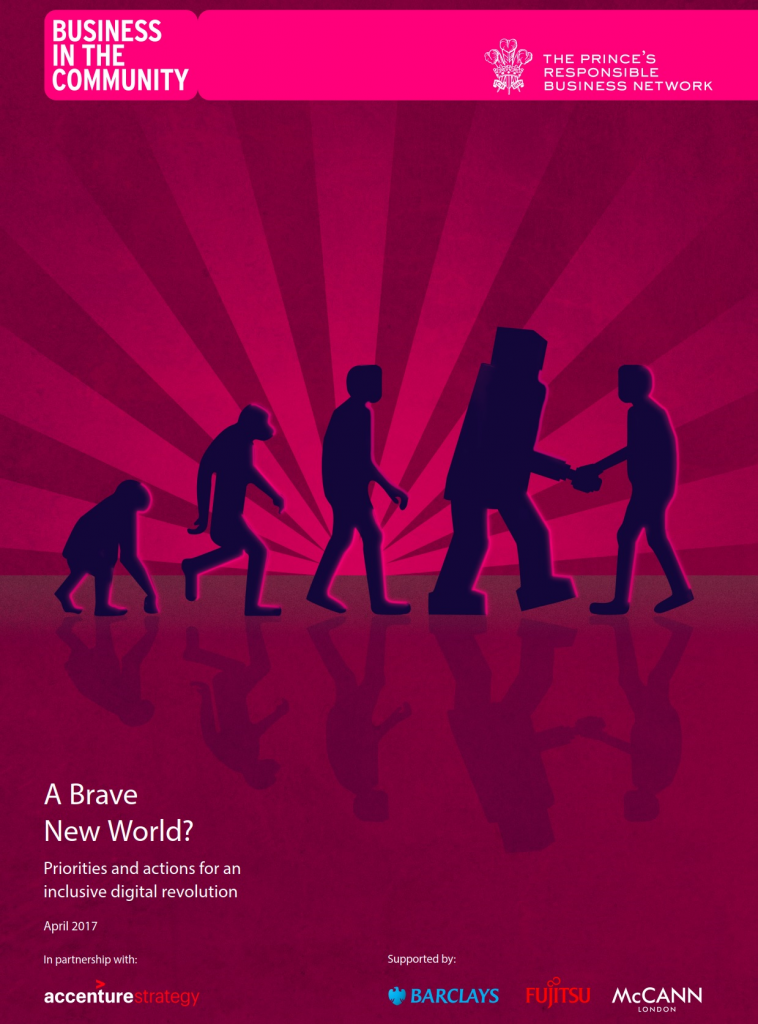
A curious choice of imagery, one could say.
How, you might be wondering, do they tally the predictions of huge job losses with the claim of “huge value for UK society“?
“Creating new jobs: There were 1.56 million jobs in the UK’s digital technology industries in 2014, with new jobs growing nearly three times faster than the rest of the economy.”
Brilliant. As society slowly grinds to a halt under the dead weight of the masses of people made redundant by the adoption of automation through AI, there should be some more tech jobs to take up a bit of the slack.
Tech jobs, which in truth are simply the marketing and administration for the vast extractive industry that digital infrastructure necessitates for its hardware to even be able to exist. All of which requires rare earth minerals, hugely destructive mining processes, the creation of obscene amounts of pollutants and waste, which we in the industrialised countries are protected from seeing, or having to suffer the effects of.
The document is full of faux-concern for the effects the huge changes its author’s patrons are bringing about will have on society, while serious ‘solutions’ to social upheaval are completly absent. Their imagined ‘social benefits’ are utterly laughable:
“The opportunities that digital transformation creates for radically different ways of doing business can drive societal benefits including reducing environmental footprints, enabling internet access for all and enhancing community cohesion, all while creating new value for the private sector.
Focusing efforts on addressing critical social and environmental issues can be a unifying purpose for responsible businesses, by driving the highest performance from employees and finding creative solutions which ultimately drive more success. Digital can play a critical enabling role here – digital solutions play a critical role in more than 50 per cent of the 169 targets that sit beneath the United Nations’ Sustainable Development Goals, while offering around £7 trillion in additional revenues and reduced costs.”
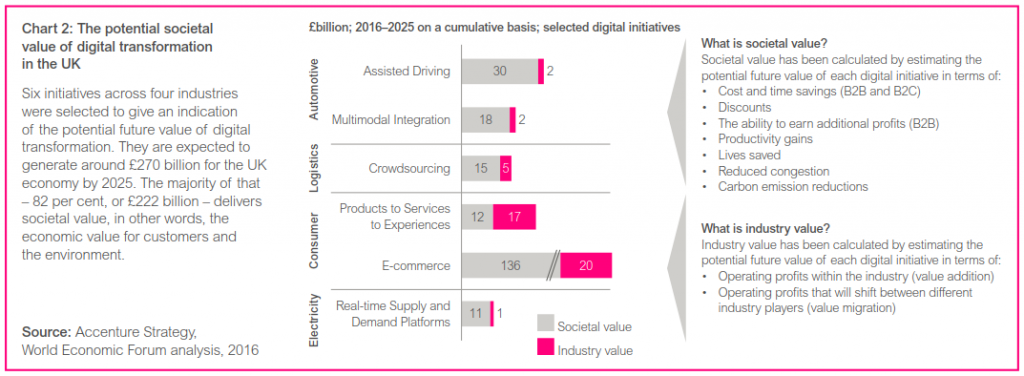
In other words, “you’ve gotta monetise that shit, baby.” Either the people writing this are utterly cynical, or they’re living in cloud cuckoo land. Given how beautifully the ‘digital transformation’ has ‘enhanced community cohesion’ thus far, we can’t wait to see what they have in mind for us for the future. The truth of the matter is that all of the ‘benefits’ discussed relate to business’ bottom lines, while their overtures to social and environmental good are pure fantasy. One has to wonder how many people in these companies actually believe in such delusions.
“Minimise the environmental impact of operations, committing to 100% renewable energy and zero e-waste.”
What kind of conjuring tricks are they intending to use to ‘disappear’ all that e-waste? Committing to make-believe, it would seem. By projecting ‘sustainability’ into the future, and regularly spouting buzzwords like ‘circular economy’ and ‘cradle-to-grave design’, they can avoid looking at the damage that’s being done in the present, both ecologically and socially. Asking how many of these products and services are actully needed is presumably outside of their remit. It’s a ‘win-win’ for big business and the tech elite – both lining their pockets and feeling smug about it at the same time – and a ‘lose-lose’ for everyone else.
The next heading is: “Business has the opportunity to help secure an inclusive digital revolution.” That’s right – there’s another 4 billion suckers out there who can’t even access your digital services yet. Trouble is you need to keep a significant number of them dirt poor, so they’ll be willing to mine the minerals and put your products together for minimal pay. But with all of your combined brainpower, you’ll surely work out a way of ‘transforming’ them into consumers.
Finally, this is followed by the statement “Business in the Community will lead this agenda.” ‘Leading the digital inclusion agenda’… where did we hear that one before? Gail, that was you, wasn’t it? Small world.
And before you know it, everyone’s speaking the same language: the corporates, government officials, the UN, charities, NGOs, even ‘activists’…
“Till at last the child’s mind is these suggestions, and the sum of the suggestions is the child’s mind. And not the child’s mind only. The adult’s mind too—all his life long. The mind that judges and desires and decides—made up of these suggestions. But all these suggestions are our suggestions… Suggestions from the State.”
– Aldous Huxley, Brave New World
Please note that we also have a page on Facespook, which you can ‘like’ or ‘follow’ to be kept up to date on new articles (assuming that the algorithims permit it): https://www.facebook.com/UNExtinction/
ICL may be an Israeli chemical company but it was more likely to be a reference to the British government’s computer company in this case, set up to provide IT to national and local government. After privatisation, around 2002 it became part of Fujitsu, who also get a mention in this story.
The charity funnels large sums of cash to its field offices in the developing world where staff work alongside national governments — including brutal dictatorships — to help maintain and police vast national parks that shelter endangered species. It says it is active in more than 100 countries on five continents, and showcases its collaborations with communities, whether in protecting reefs in the Pacific islands or facing off against illegal gold mining in the Amazon rainforest .